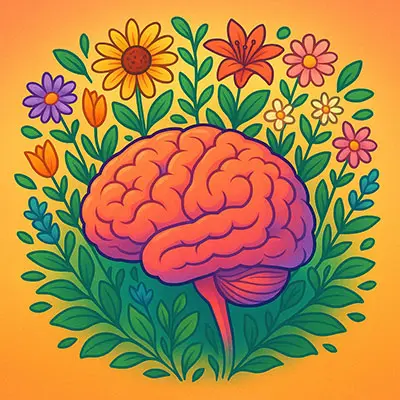Hey there. If you’ve ever felt like your mind was running a marathon while your body was just trying to survive the day you’re not alone.
Mental self-care is one of those things that sounds simple but gets complicated real fast. It’s not just about relaxing or “thinking positive” it’s about intentionally caring for your thoughts, emotions, and inner world.
So let’s take a slow, honest walk into what mental self-care really means no fluff, no pressure. about more
Table of Contents
- Introduction
- What Is Mental Self-Care, Really?
- Why Do You Need Mental Self-Care?
- How Mental Self-Care Impacts Your Mind and Body
- Signs You Need More Mental Self-Care
- Practical Ways to Practice Mental Self-Care
- Start with Small Habits
- Practice Mindfulness
- Set Emotional Boundaries
- Nurture Supportive Connections
- Limit Overwhelming Inputs
- Embrace Self-Compassion
- Mental Self-Care and the LGBTQ+ Experience
- Q&A: Your Questions Answered
- What Is a Self-Care Checklist?
Introduction
Ever feel like your brain’s running a marathon while you’re just trying to get through the day? Oh man, I totally get it. 😅 A couple of years ago, I was juggling work deadlines, family drama, and a never-ending to-do list. My mind was a mess racing thoughts, snapping at people I love, and feeling like I couldn’t catch a break. I thought I just needed a nap, but it was deeper than that. That’s when I stumbled into mental self-care, and let me tell you, it was a game-changer.
Mental self-care isn’t about bubble baths or forcing yourself to “think positive.” It’s about intentionally caring for your thoughts, emotions, and inner world in a way that feels kind and sustainable. It’s especially important for folks in the LGBTQ+ community, who might face extra pressures from societal expectations. In this beginner-friendly guide, we’ll explore what mental self-care really means, why you need it, and practical ways to make it part of your life. Whether you’re feeling overwhelmed or just wanna feel more like yourself, I’ve got some real talk and tips to share. Ready to give your mind some love?
how to start mental self-care?

What Is Mental Self-Care, Really?
Mental self-care is about taking deliberate steps to nurture your mental and emotional well-being. It’s not just about relaxing it’s about creating habits, mindsets, and boundaries that help you process thoughts and feelings in a healthy way. Think of it like maintenance for your mind, like brushing your teeth or eating breakfast.
It’s not about perfection or “fixing” yourself. It’s about small, intentional acts like writing down a worry, taking a deep breath, or saying no to something that drains you. According to Psychology Today, mental self-care involves practices that reduce stress and build resilience, helping you navigate life’s ups and downs.

For example, I used to spiral over work stress, replaying every mistake in my head. Then I started a simple habit: every morning, I’d write down one worry and one small thing I could do about it. It was ridiculously simple, but after a few weeks, my brain felt less like a hamster on a wheel. Mental self-care is often invisible no one sees you reframing a negative thought or choosing to rest but it’s powerful.
Why Do You Need Mental Self-Care?
Your mind is like a muscle it gets tired, overworked, and needs care to stay strong. In today’s fast-paced world, we’re bombarded with stress from work, social media, and life’s endless demands. Without mental self-care, that stress can pile up, leading to anxiety, burnout, or feeling disconnected from yourself.
Research from Harvard Health suggests that regular self-care practices can lower stress hormones, improve mood, and even boost physical health. For me, it was a wake-up call when I realized I was snapping at my partner over small things not because I was mad, but because my mind was overloaded. Mental self-care helps you create space to breathe, process, and show up as your best self.
How Mental Self-Care Impacts Your Mind and Body
Mental self-care doesn’t just help your thoughts it affects your whole system. Here’s how:
- Mental Clarity: Practices like journaling or mindfulness can reduce racing thoughts and improve focus. A study from Greater Good Science Center found that mindfulness reduces cognitive overload.
- Emotional Balance: Acknowledging and processing emotions like sadness or frustration helps you feel more grounded. I noticed I was less reactive after starting to name my feelings.
- Physical Health: Stress impacts your body, causing headaches, fatigue, or even a weaker immune system. Mayo Clinic links stress reduction to better physical health.
- Resilience: Regular self-care builds your ability to handle life’s challenges without burning out.
When I started practicing mental self-care, I slept better, my headaches eased, and I felt more present with friends and family. It’s like giving your mind a warm hug it ripples outward.

How Do I Know I Need Mental Self-Care?
Honestly? Most of us do. But here are a few signs your brain is waving a tiny white flag:
– You feel mentally exhausted even after resting
– Everything feels overwhelming even small stuff
– You can’t focus or your thoughts are racing
– You snap at people more than usual (even if you don’t mean to)
These aren’t “bad” symptoms they’re signals. And they deserve kindness, not guilt.
”Mental clarity is not a luxury,it’s a survival skill.”
Psychology Today
Signs You Need More Mental Self-Care
Not sure if you need mental self-care? Here are some signs your brain might be waving a little white flag:
- Mental Exhaustion: You feel drained, even after sleeping or resting.
- Overwhelm: Small tasks like answering an email feel like climbing a mountain.
- Racing Thoughts: Your mind’s constantly buzzing, making it hard to focus.
- Irritability: You snap at people more than usual, even if you don’t mean to.
- Feeling Disconnected: You’re going through the motions but don’t feel like yourself.
These aren’t signs of weakness they’re signals your mind needs some TLC. I used to think I was just “bad at handling stress” until I realized these were cries for care.
Diving Deeper into Mental Self-Care: Answering Common Questions

What Is Mental Self-Care?
🧠 You know, a lot of people hear the term mental self-care and immediately think it’s just about meditating or taking bubble baths. But honestly, it’s much deeper. Mental self-care means creating tiny routines, behaviors, and mindsets that keep your thoughts from running wild
For example, last year I found myself spiraling almost daily constant overthinking, worrying about work, family, everything. What helped? I started writing in a tiny journal every morning. Just three minutes. Nothing fancy. Writing down my top worry and one small thing I could do about it. It was ridiculously simple, but after a few weeks, my brain didn’t feel like it was spinning all the time.
Mental self-care is often invisible. You don’t see someone choosing to reframe a negative thought. You don’t see someone practicing self-compassion when they fail. But these are powerful tools
Some key parts of mental self-care include:
- Journaling daily reflections.
- Practicing mindfulness or light breathing exercises.
- Setting clear mental boundaries like saying no when you’re overwhelmed.
- Limiting exposure to toxic media or overwhelming news.
- Talking to a friend or therapist when things feel heavy.
It’s not about perfection it’s about small habits that protect your peace.

Practical Ways to Practice Mental Self-Care
Ready to give your mind some love? Here are six practical ways to start, even if you’re a beginner:
Start with Small Habits
You don’t need to overhaul your life. Start with tiny habits, like writing down three things you’re grateful for each morning or spending five minutes breathing deeply. I started with a three-minute journal entry each day, and it helped me feel less scattered. Our Journaling for Mental Health guide has prompts to get you going.
Practice Mindfulness
Mindfulness is about being present without judgment. Try the 5-4-3-2-1 technique: name 5 things you see, 4 you can touch, 3 you hear, 2 you smell, 1 you taste. It’s like hitting a reset button for your brain. I do this when I’m stressed at work, and it brings me back to the moment. Check out Mindfulness for Beginners for more.
Set Emotional Boundaries
Learn to say no to things that drain you, like extra work projects or toxic conversations. I used to say yes to everything, thinking it made me a “good person,” but it left me exhausted. Saying no is self-care. Our Emotional Boundaries guide can help you set limits with confidence.
Nurture Supportive Connections
Surround yourself with people who lift you up. Call a friend, join a support group, or talk to a therapist. I found that a weekly coffee chat with my best friend was like a mental recharge. BetterHelp connects you with therapists who understand your needs.
Limit Overwhelming Inputs
Cut back on things that stress you out, like doomscrolling on social media or watching heavy news. I unfollowed accounts that made me feel inadequate and started following ones that inspired calm. Our Self-Care and Digital Minimalism guide has tips for managing digital overload.
Embrace Self-Compassion
Be kind to yourself when you mess up or feel overwhelmed. Try a self-compassion break: place a hand on your heart and say, “I’m doing my best, and that’s enough.” This helped me stop beating myself up for small mistakes. Learn more in our Building Self-Compassion guide.
Mental Self-Care and the LGBTQ+ Experience

For LGBTQ+ folks, mental self-care can be especially vital due to societal pressures like discrimination or the emotional labor of navigating identity.
You might feel the need to constantly prove your worth, which can amplify stress and mental fatigue. Finding affirming spaces like queer support groups or therapists who understand your experiences can make a huge difference. Resources like The Trevor Project offer tailored support to help you nurture your mental well-being.
How to Explain Self-Care to Kids?
If you’ve ever tried to explain self-care to a child, you know how tricky it can be. Kids live in the moment, so the idea of “taking care of your mind” might sound confusing.
I once explained it to my nephew like this:
“Your brain gets tired like your legs do after running. Self-care means giving your brain little rests so it can feel happy again.”
That clicked for him.
When explaining self-care to kids:
- Use simple words.
- Make it relatable: compare it to sleep, snacks, or playtime.
- Model it. Kids copy adults way more than they listen.
- Teach them it’s okay to talk about feelings, even sad or angry ones.
- Create tiny routines like gratitude before bed or drawing how they feel.
For example, one mom I know has a “Feelings Jar.” Every night, her son draws a face (happy, sad, mad, scared) and drops it into the jar. They talk about the feelings while brushing teeth. That small act helps kids build emotional awareness early.
Q&A: Your Questions Answered
Q: What’s the difference between mental and emotional self-care?
A: Mental self-care focuses on your thoughts like managing stress or racing thoughts while emotional self-care is about processing feelings like sadness or anger. Both overlap, but mental self-care might involve journaling, while emotional self-care could mean crying it out or talking to a friend.
Q: I feel guilty taking time for self-care. What do I do?
A: Guilt is common, but self-care isn’t selfish it’s essential. Remind yourself, “I can’t pour from an empty cup.” Start small, like five minutes of breathing, to ease the guilt. Our Building Self-Compassion guide can help.
Q: How do I start if I’m overwhelmed?
A: Pick one tiny habit, like writing down one thing you’re grateful for. It’s okay to start small progress, not perfection, is the goal.
Q: Can self-care help with anxiety?
A: Yes! Practices like mindfulness and boundary-setting can reduce anxiety by calming your nervous system. Harvard Health has more on this.
Q: How do I explain self-care to kids?
A: Keep it simple: “It’s like giving your brain a hug to feel happy and strong.” Model it by practicing self-care yourself, like doing a gratitude exercise together.

What Is Emotional Self-Care?
Now let’s get into emotional self-care which is like a cousin to mental self-care, but slightly different.
While mental self-care focuses on thoughts, emotional self-care focuses on feelings. It’s about noticing, accepting, and managing your emotions in a healthy way.
Let’s say you had a bad day at work. Emotional self-care is:
- Allowing yourself to feel frustrated.
- Not shaming yourself for being upset.
- Maybe talking to someone you trust.
- Doing something soothing like a walk or warm shower instead of numbing with endless scrolling or junk food.
One thing that really helped me last year was learning how to say out loud:
“I feel anxious right now, and that’s okay. It doesn’t mean I’m weak.”
Just giving myself permission to feel instead of fighting the feeling took a huge weight off my chest.
Emotional self-care includes:
- Self-compassion.
- Healthy expression (talking, writing, creating).
- Letting go of emotional perfectionism.
- Giving yourself time to process emotions fully.
What Is a Self-Care Checklist?
People love lists. Honestly, I do too. Self-care checklists give your brain something easy to follow when you’re too overwhelmed to think.
Here’s a simple Mental & Emotional Self-Care Checklist you can steal right now:
| ✅ | Activity |
|---|---|
| ☐ | 5-minute breathing or meditation |
| ☐ | Write 3 things you’re grateful for |
| ☐ | Drink a full glass of water |
| ☐ | Text or call someone you trust |
| ☐ | Spend 10 minutes outdoors |
| ☐ | Avoid checking emails after 8 PM |
| ☐ | Journal one worry and one possible solution |
| ☐ | Watch or listen to something calming |
| ☐ | Say one kind thing to yourself |
You don’t have to do all of these every day. Some days you’ll manage three, other days just one. The point is progress, not perfection.
Common Struggle: “I Don’t Deserve Self-Care”
Let’s be real. One of the biggest blocks to mental self-care is guilt. You start feeling like:
- “I’m being selfish.”
- “Other people have it worse.”
- “I should be doing more instead.”
This guilt traps so many people.
Here’s a truth I had to learn (and remind myself often):
You can’t pour from an empty cup.
Taking care of yourself mentally and emotionally isn’t selfish it’s essential. When you feel balanced, you’re a better parent, partner, worker, and friend. Your peace ripples outward.

Final Thought
Mental self-care isn’t a luxury it’s survival with softness. It’s not about becoming perfect or “fixing yourself,” it’s about showing up for yourself even if all you do today is breathe deeply or say “no” once.
Be gentle with your mind. You deserve that.
🌐 Source: For more science-backed tips, check out Psychology Today’s guide to mental well-being: https://www.psychologytoday.com/us/basics/self-care
- Harvard Health – Stress Management
- Psychology Today – Setting Boundaries
- The Trevor Project – Mental Health Resources
Mental self-care isn’t a luxury. It’s maintenance. Like brushing your teeth or eating breakfast. If you approach it with tiny, consistent steps, you’ll notice your resilience grow.
Even as I write this, I’m reminding myself:
“Close the laptop earlier tonight. Take that walk. Don’t doomscroll before bed.”
Small steps matter more than perfect routines.
Related articles that I recommend you read
Mental self-care focuses on your cognitive health like managing stress and clarity while emotional self-care is about processing feelings and emotional balance.
If you constantly feel overwhelmed, have racing thoughts, or can’t focus, it might be time to implement simple daily practices like journaling or unplugging.
Mental self-care is all about doing stuff that keeps your mind healthy like journaling or taking a breather. It’s super important ‘cause it helps you handle stress and feel more like yourself, especially when life gets crazy. 😊
Start small! Try a 5-minute deep breathing session or write down one thing you’re grateful for. No biggie just pick what feels good for you and go with it. 🌱
Yep! For LGBTQ+ folks, finding safe spaces to connect or journaling about identity can be huge. It’s about honoring who you are without pressure check out supportive groups for extra help. 🌈
Time needed: 30 minutes
How to Practice Mental Self-Care in 5 Easy Steps
- Step 1: Take a Quick Pause
Find a quiet spot and take 5 deep breaths. It’s like hitting reset on your brain super simple! 😊
- Step 2: Journal Your Thoughts
Grab a notebook and jot down what’s on your mind for 2 minutes. No rules, just let it flow.
- Step 3: Connect with Someone Safe
Call a friend or join a supportive group, especially if you’re LGBTQ+ and need a safe vibe
- Step 4: Move a Little
Stretch or walk for 5 minutes get that energy flowing without overdoing it. Feels good, right? 🚶♂️
- Step 5: Reflect and Adjust
At day’s end, ask yourself, “Did this help?” Tweak what works and keep going you’ve got this! 😄
✨ Last updated on 23.07.2025











Leave a Reply